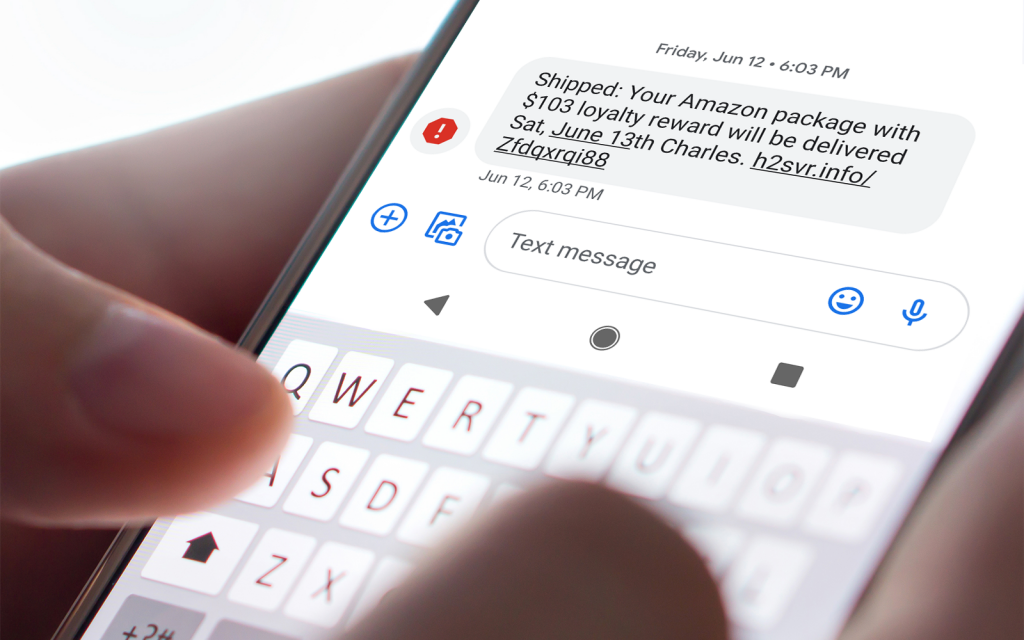You’ve probably signed up for credit card alerts and bank notifications, so that you can keep tabs on your financial information. Well, now the bad guys are tapping into that technology to rip you off. They are tricking you and designing links and websites that look just like the real thing, so that you receive scary looking warnings on your phone about locked accounts and abnormal activity.
What is Smishing?
SMS Phishing, also known as Smishing, is a text messaging scam. It’s when a hacker tries to trick you into clicking a link. When you click on the link, it takes you to a website that looks legitimate. In order to gain access to your information, the site then asks you for pertinent information, such as your full name, account number, and social security number. And just like that, you’ve just given a criminal access to your bank account information and more!
What you need to know!
1. Pause before you react! Take the time to actually login to your account and see if everything is okay. Use your bank mobile app or login from your laptop or desktop computer, but DO NOT click any links.
2. Never ever, ever give out your bank account number (especially via text).
3. Don’t give out your social security number or even your zip code.
4. When in doubt, pick up the phone and call your bank or financial institution or if you really get nervous, drive there, and check it out for yourself.
5. If you do give out your information, immediately call your bank, tell them which information you gave out, and ask them to put a temporary hold on all your accounts.
6. Stolen money is required to be refunded per federal law. It might take some time to get your money back, but you WILL get it, so be persistent.
Why are we seeing an increase in texting scams?
All of us have cell phones. And since companies are looking to be more accessible for their clients, they have also opened the window for scammers to take advantage of technology. These cyber-crooks are stealing money and data, and even more scary, they can find out who you are, where you live, where you work, who your family members are, and much worse.
Stay alert, be vigilant, and pause before clicking any links.

